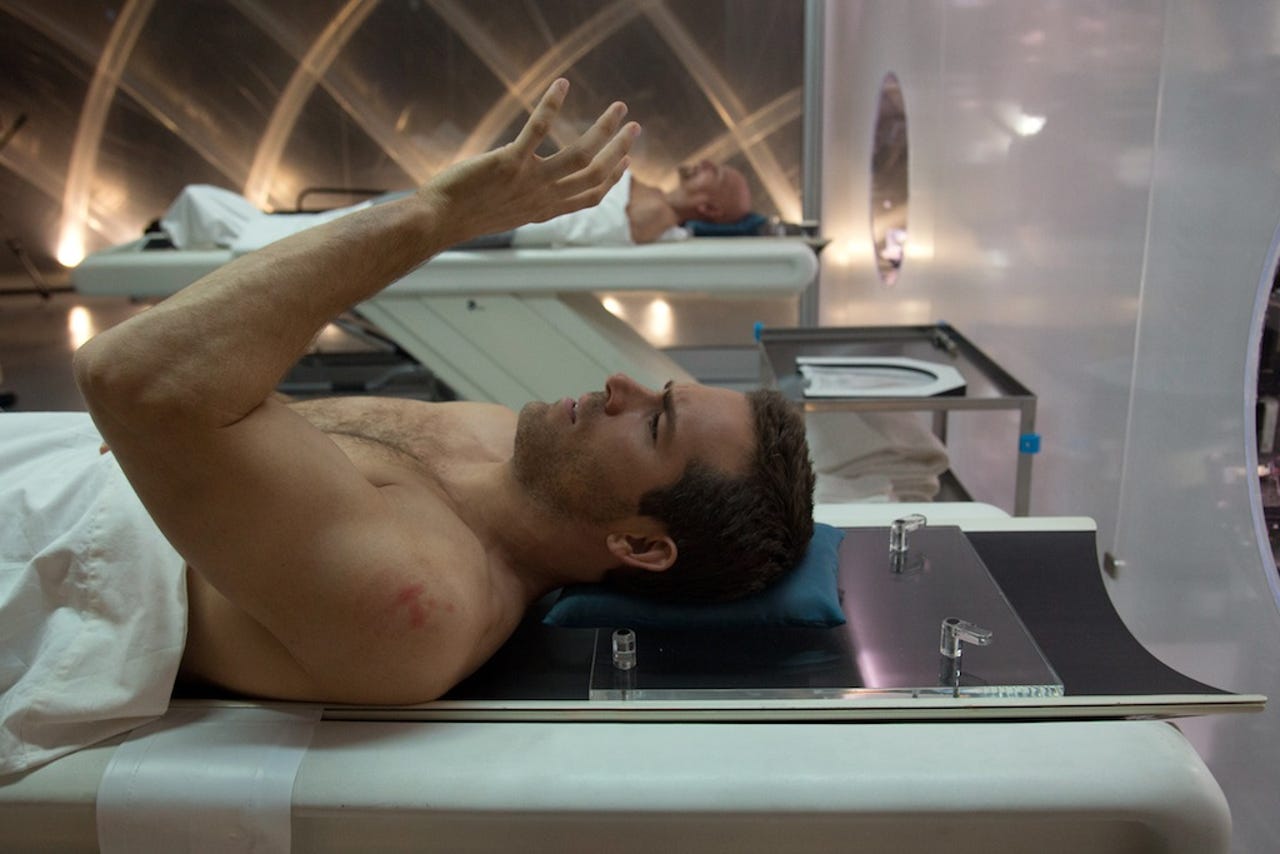'Self/less' Review: The trouble with transhumans

Self/less, starring Sir Ben Kingsley and Ryan Reynolds, opens this weekend to bring a classic sci-fi dilemma to the cineplexes: If consciousness can be transferred from one body to another, who gets the privilege, and where do the bodies come from?
It's a storyline that has endured in sci-fi books and film for decades. But what's interesting about Self/Less is that instead of dancing around some of the deeper questions tied to the transhuman fantasy, it chooses to pry the problems open over an open fire of Randian entitlement -- itself a Silicon Valley hallmark, if ever there was one.
Not what you'd expect? Me neither, and I was surprised to enjoy this film.
Kingsley's too-short appearance on the screen actually hooked me, even though sympathy for a rich dude having his too-late, empathy wake-up call is something many people (like me) are running short on these days.
In Self/less, Sir Ben Kingsley is bazilionnaire Damian Hale, who's dying of cancer, with the temperament of a rude fatcat, and an emotionally disastrous relationship with his daughter to boot.
When an unknown friend puts him in touch with an elite, invitation-only group, he has a chance to be part of an experimental, secretive program that transfers consciousness from one body to the next.
Our wealthy protagonist is assured that his new body -- played by Ryan Reynolds -- isn't off the used car lot, but instead grown in a laboratory for expressly this purpose. Of course, it's not, and that where the three-act storyline begins.
But not first without threading in some surprisingly pointed social commentary, through character words and actions, about why "great" (read: wealthy, privileged, socially validated) men deserve to live forever.
I live in San Francisco, and few people will argue against the belief that the current crop of newly-minted millionaires have really screwed up our city -- not necessarily with their money, but with their blatant disregard for our economic and social ecosystems. Playing to the maxim that really rich people eventually either want to go to outer space or live forever, Self/less as a setup has roots in reality that is as familiar to Bay Area natives as myself.
The film's too-close-for-comfort vibe was enhanced after the action-packed finish. After the film's screening, neuroscientist Dr. Niren Murthy of U.C. Berkeley took questions from the audience about the science of Self/less.
Most were surprised by Dr. Murthy's answer when he was asked to predict how soon something like "resleeving" or "shedding" could be a reality.
His prediction? Not in his lifetime, but he felt safe to say that it could happen, and possibly 100 years from now. This, he said, was nowhere near possible now, because we're just beginning to understand the way that memory is encoded and stored into cells, and the science around neural implants and memory is in its infancy.
Dr. Murthy explained that in this way, he could see it become a reality, though smilingly expressed doubt -- at a glance, for the Self/less technique wasn't explained -- about the film's MRI-like consciousness transference machines being a practical way to accomplish this.
But the really creepy thing to ponder, thanks to the film's primary plot device and the future realities, was the question of bodies.
If this was possible, where would the bodies come from ... ethically? Would we have a right-to-consciousness movement for bodies grown in vats kept in comas? Is it ethical to transfer one's consciousness to a cat body for a little while?
Self/less is an entertaining, transhuman thriller with a familiar storyline, and a twist at its conclusion. It opens Friday, July 10, at theaters across America.
